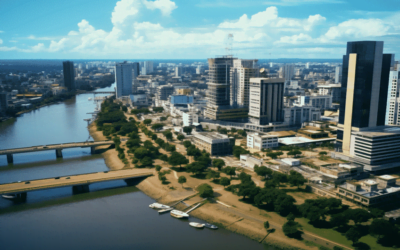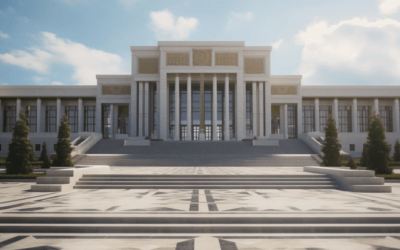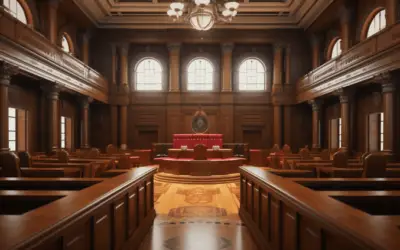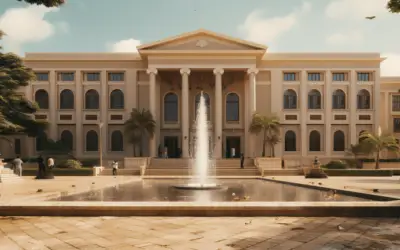Understanding Russia’s drone laws can be a complex and perplexing task, but worry not! I’ve delved deep into the intricacies to provide you with a clear and concise guide.
So, if you’ve been wondering about the do’s and don’ts of flying drones in Russia, you’ve come to the right place.
In my pursuit to unearth the latest on Russia’s drone regulations, I’ve left no stone unturned. From poring over official documents to chatting with fellow enthusiasts and experts, I’ve compiled a comprehensive resource that’ll demystify all things related to drones in Russia.
You see, the goal is to help you navigate these laws with confidence.
Are you eager to take your drone to the Russian skies and want to do it within legal boundaries? Well, look no further! This article is your key to understanding and complying with Russia’s drone laws.
Whether you’re a novice drone pilot or a seasoned pro, I’ve got your back. Dive into the details with me and ensure your drone flights are a smooth and lawful experience. Let’s get started!
Registration and Certification

Let’s delve into the nitty-gritty of Russia’s drone laws, where we tackle the essential topics of drone registration and certification. Strap in; this is where the adventure begins.
Requirements for Drone Registration
When it comes to flying drones in Russia, there’s one rule that stands out: drones weighing more than 250 grams need to be registered.
This weight limit might sound strict, but it’s a crucial safety measure. It ensures that drone operators, from hobbyists to professionals, are accountable for their flying machines.
Before you start worrying about red tape, understand that the registration process is relatively straightforward.
In my research, I found that Rosaviatsia, Russia’s Federal Air Transport Agency, oversees this process. They require information about your drone’s specifications and, of course, who owns it.
Weight and Size Limitations
The weight limit may seem a bit low, especially if you’re thinking about the latest, feature-packed drones. But remember, it’s primarily in place for safety reasons. Heavier drones carry more risk, especially in the event of a malfunction or an unexpected landing.
This regulation ensures that even the smallest consumer drones are on the radar, making it a comprehensive and sensible approach to drone oversight.
Registration Process with Rosaviatsia
Now, let’s talk about the registration process. Fortunately, it’s not as daunting as it may sound. Rosaviatsia has set up a system to make this a fairly smooth experience. To comply with the law, you’ll need to provide information about your drone and its owner.
This data will be stored in a central database, making it accessible to authorities if necessary. It’s a necessary step to ensure accountability in the world of drone enthusiasts.
Certification for Specialized Operations
Diving deeper into Russia’s drone regulations, we come across the concept of certification for specialized operations. This is where things get interesting and potentially opens doors for various drone applications.
Commercial Drone Operations
For those looking to utilize drones for commercial purposes, such as aerial photography, surveying, or delivery services, there are additional steps to take. Russia requires certification for specialized drone operations.
In my research, I’ve found that these certificates come into play when you plan to use your drone in a manner that goes beyond recreational use. The process varies depending on the type of operation, but it often includes additional training and certification requirements.
Certification Process and Requirements
The specifics of the certification process and requirements can differ depending on your intended use. Some drone operators may need to undergo specialized training programs and meet certain criteria to obtain certification.
These criteria may include demonstrating a deep understanding of aviation regulations, safety measures, and operational procedures. It’s essential to check the latest regulations and consult with relevant authorities to ensure you meet the necessary requirements for your specific drone operations.
It might seem like an extra layer of bureaucracy, but it’s all about ensuring safety and responsibility in the use of drones for commercial purposes.
Stay with me as we uncover more about Russia’s drone laws, exploring operational restrictions, safety concerns, and what you need to know to navigate these skies responsibly.
Also Read: Drone Laws in Romania 2024
Operational Restrictions

Now, let’s navigate through the operational restrictions imposed by Russia’s drone laws. Staying on the right side of these regulations is essential for safe and responsible drone operations.
No-Fly Zones
When it comes to no-fly zones, there are certain areas that are off-limits for drone enthusiasts and operators.
These areas include critical zones like airports and military facilities. Understanding where you can’t fly your drone is crucial, not just to avoid breaking the law, but to ensure the safety and security of these sensitive locations.
Prohibited Areas (Airports, Military Facilities, etc.)
Russia, like many countries, has strict regulations about flying drones near airports and military bases. The reasons are clear; drones can pose a serious threat to aviation and national security.
You definitely don’t want to risk flying near these areas without permission. If you’re near a restricted zone and think you have a legitimate reason to fly your drone there, obtaining the necessary permits is possible.
But keep in mind, this isn’t a straightforward process, and it’s subject to thorough evaluation.
Obtaining Permits for Restricted Zones
If your drone-related activities require access to restricted zones, it’s not impossible, but it can be quite challenging. Russia’s authorities take security seriously, and for good reason. You’ll need to seek permission from the relevant agencies, and they’ll assess your request on a case-by-case basis.
The key here is to provide a compelling reason and demonstrate that your operation won’t compromise safety or security. It’s not easy, but it’s possible with the right approach.
Altitude and Distance Restrictions
Altitude and distance restrictions are critical aspects of drone operations. These rules ensure that drones don’t interfere with other airspace users and remain within the operator’s control.
Maximum Altitude Limit
The maximum altitude limit set by Russian drone regulations is designed to prevent drones from entering airspace reserved for manned aircraft.
Typically, the maximum altitude allowed for drone flights is around 120 meters above the ground. This restriction is in place to minimize the risk of collisions with aircraft and maintain a clear separation between drones and conventional aviation.
Operator’s Line of Sight Requirement
Maintaining visual contact with your drone during flight is a fundamental safety practice. Russian drone laws typically mandate that you should always keep your drone within your line of sight while operating it.
This requirement ensures that you can quickly respond to any potential issues or obstacles during the flight. It’s a practical rule that emphasizes the importance of responsible drone operation.
Remote Identification
Remote identification is an essential component of modern drone regulations. It’s about ensuring that authorities can identify and track drones during their flights.
Requirement for Remote ID Equipment
Drones in Russia may be required to have remote identification equipment. This equipment allows authorities to identify the drone and its operator during the flight.
It’s a valuable safety feature that can help in cases of accidents, incidents, or violations of regulations. Compliance with this requirement is vital for responsible drone operation.
Tracking and Compliance
For drone operators, ensuring that their drones comply with remote identification rules is essential. It’s not just a legal obligation; it’s a safety measure. Additionally, complying with these rules helps build trust and demonstrates responsible drone operation.
Authorities take tracking and compliance seriously, and you should also ensure a safe and positive experience for all airspace users.
Stay with me as we unravel more about Russia’s drone laws, covering topics like safety and privacy concerns, enforcement, and future trends in drone regulations.
Also Read: Drone Laws in Qatar 2024
Safety and Privacy Concerns

As we continue our journey through Russia’s drone laws, we reach an essential crossroads where safety and privacy concerns come to the forefront. Ensuring safe and responsible drone operation is not only a legal requirement but also a moral responsibility.
Liability Insurance for Drone Operators
Safety is paramount when operating drones, and liability insurance is a key aspect of ensuring it. Accidents can happen, and drone enthusiasts need to be prepared for the unexpected.
Liability insurance for drone operators is not just a legal requirement in some cases; it’s also a safety net for potential damages or accidents caused by your drone. It’s the responsible thing to do, and it can save you from significant financial consequences.
Privacy Regulations and Consent
Drones equipped with cameras and other sensors can raise important privacy concerns, and it’s essential to respect individuals’ privacy rights when operating these devices. Russia, like many other countries, has regulations in place to address these concerns.
Recording in Private Spaces
One of the primary privacy concerns related to drones is recording in private spaces. Flying a drone equipped with cameras over private properties, such as homes or gardens, can infringe on the privacy of individuals.
Russia’s drone laws typically require consent from property owners if you intend to fly your drone over their land or record imagery of their property. This consent ensures that individuals have control over their personal space and privacy.
Data Protection Laws
Data protection is another significant aspect of privacy concerns in the context of drone operations. When you capture images or videos with your drone, you’re essentially collecting data, and data protection laws apply.
These laws require you to handle and store data responsibly and securely, ensuring that you don’t misuse or compromise the data you collect. Adhering to data protection regulations is not just a legal requirement; it’s also an ethical practice that respects individuals’ privacy rights.
By understanding and following safety and privacy regulations, drone operators can enjoy their hobby or profession responsibly while also protecting the rights and privacy of others.
These regulations are not merely legal obligations but a foundation for building trust and ensuring that drone technology is used in a way that benefits society as a whole.
Stay with me as we explore the enforcement and penalties associated with Russia’s drone laws and delve into emerging trends in the world of drones.
Also Read: Drone Laws in Portugal 2024
Enforcement and Penalties

Understanding the enforcement and penalties associated with Russia’s drone laws is vital for drone operators. Compliance is not just a legal obligation; it’s essential for ensuring the safety and security of the airspace and those on the ground.
Consequences of Violating Drone Laws
When drone operators breach Russia’s drone laws, there are significant consequences that they should be aware of.
Fines and Penalties
One of the most immediate consequences of violating drone laws in Russia is facing fines and penalties.
The severity of these fines can vary based on the nature and gravity of the violation. Common infractions include flying in restricted areas, ignoring altitude restrictions, or operating a drone without proper registration.
These penalties can range from minor fines to substantial financial burdens. It’s a strong incentive to operate your drone within legal boundaries.
Legal Consequences for Unlawful Operations
Beyond fines, unlawful drone operations can lead to legal consequences. These may include facing civil or criminal charges, depending on the severity of the violation and any potential harm caused.
Legal actions could result in more than just financial consequences, making it crucial for drone operators to be aware of and adhere to the regulations.
Enforcement Mechanisms
Enforcing drone laws and ensuring compliance is a complex process that involves several key players and technologies.
Role of Authorities (Rosaviatsia, Local Law Enforcement)
Russia’s Federal Air Transport Agency, Rosaviatsia, plays a central role in the enforcement of drone laws. They oversee drone registration, certification, and monitoring.
Local law enforcement agencies also have a part to play, as they can be involved in on-the-ground enforcement, investigations, and responses to complaints. Cooperation between these entities is essential for maintaining effective drone law enforcement.
Monitoring and Surveillance Methods
Monitoring and surveillance are critical aspects of enforcing drone laws. Authorities use various technologies to track drones and ensure compliance.
Remote identification equipment on drones helps in identifying operators during flights. Additionally, radar and other monitoring systems are employed to detect unauthorized drone activities. These methods serve as deterrents and tools for tracking drone operators who violate the law.
Understanding the enforcement and penalties associated with Russia’s drone laws is crucial for every drone operator. Compliance not only ensures your safety and that of others but also helps maintain a positive image for the drone community.
As technology continues to advance, these enforcement mechanisms will likely become even more sophisticated, making it even more important to stay within legal boundaries. In our next segment, we’ll explore the recent updates in Russia’s drone regulations and look at emerging trends in this rapidly evolving field.
Also Read: Drone Laws in Poland 2024
Recent Updates and Future Trends
The world of drone regulations is continually evolving. In this section, we’ll explore the recent changes in Russia’s drone regulations, emerging trends, and what the future may hold for drone enthusiasts.
Recent Changes in Drone Regulations (if applicable)
While as of my last knowledge update in September 2021, I may not have specific information on the latest updates in Russia’s drone regulations, it’s essential for drone operators to stay updated with any changes that may have occurred since then.
Regulatory authorities, like Rosaviatsia, often introduce amendments to address evolving challenges or accommodate advancements in drone technology. Checking official government sources or staying informed through drone enthusiast communities is the best way to keep up with recent updates.
Emerging Trends in Drone Laws and Technology
The world of drones is constantly evolving, and emerging trends are shaping the way we operate and regulate these unmanned aerial systems.
One significant trend is the increasing use of drones for various commercial and industrial applications, such as agriculture, construction, and delivery services.
As technology advances, drones are becoming more capable, offering higher payloads, longer flight times, and better data-capturing capabilities. These advancements are driving changes in drone regulations to accommodate their expanded use.
Predictions for Future Regulations
While I can’t predict the future with certainty, some trends in drone regulations are already taking shape. The focus will likely continue to be on safety, security, and privacy concerns. We can expect regulations to become more stringent in critical areas, such as airspace near airports and other sensitive locations.
Additionally, with the rapid growth of drone technology, we may see more specific regulations for different types of drones and operations, as well as more standardized international regulations to ensure global compatibility.
In the fast-paced world of drones, it’s crucial for operators to stay informed about changes in regulations and technological developments.
Whether you’re a hobbyist or a professional drone pilot, staying ahead of the curve will not only keep you compliant with the law but also allow you to leverage the full potential of this exciting technology.
As we wrap up this exploration of Russia’s drone laws, remember that compliance and responsible operation are key to enjoying the skies safely and respectfully.
Also Read: Drone Laws in Philippines 2024
Final Thoughts on Russia Drone Laws
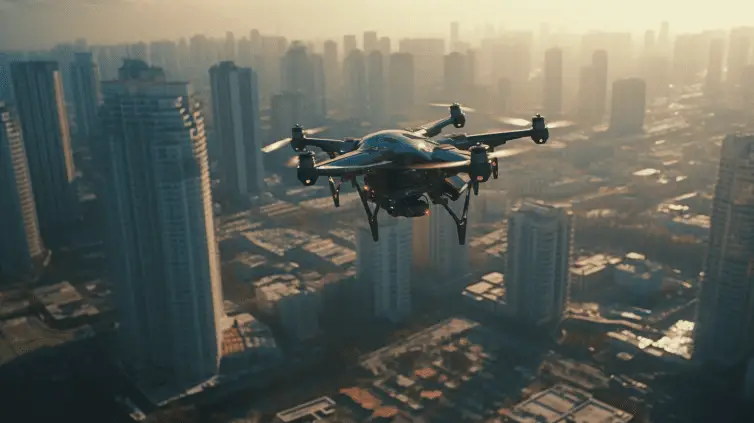
As we reach the final stretch of our exploration of Russia’s drone laws, it’s time to reflect on the key takeaways and emphasize the significance of responsible drone operations.
Russia’s drone laws are in place for a reason: to ensure the safe, secure, and responsible operation of unmanned aerial systems.
While they may seem complex and sometimes restrictive, they are designed to strike a balance between enabling the incredible potential of drone technology and safeguarding the interests of national security, aviation safety, and individual privacy.
Adhering to these laws isn’t just a matter of compliance; it’s an act of responsibility. Responsible drone operation protects not only yourself but also those on the ground and the integrity of the airspace.
It helps build trust within the drone community and among the public, ensuring that this technology can continue to thrive. Remember, your actions as a drone operator have a broader impact on the industry as a whole.
As the landscape of drone technology and regulations evolves, it’s crucial for drone enthusiasts to remain proactive.
Regularly checking for updates in regulations, understanding the specific rules in your area, and maintaining a commitment to safe and ethical operation is the path to successful and satisfying drone experiences.
In conclusion, Russia’s drone laws are a framework that enables the safe and responsible use of drones in a dynamic and evolving technological landscape. The world of drones is expanding, and as drone operators, we play a vital role in shaping its future.
By adhering to these regulations, you can enjoy the thrilling world of aerial exploration while contributing to a positive and secure drone ecosystem. Fly safely, fly responsibly, and continue to explore the skies with passion and care.
Frequently Asked Questions About Russia Drone Laws
1. Do I need to register my drone in Russia, and what are the weight limitations for registration?
In Russia, the registration of drones is mandatory for those weighing more than 250 grams. This weight limit is in place to ensure accountability for drone operators. The registration process involves providing information about your drone’s specifications and ownership. Compliance with this requirement is vital to operating your drone legally and responsibly.
2. What are the consequences of flying a drone in prohibited areas, such as airports or military facilities in Russia?
Flying a drone in prohibited areas, like airports or military facilities, can have serious consequences in Russia. It can lead to fines, penalties, and even legal action.
Authorities take the security of these areas seriously, and violating these restrictions can result in significant financial and legal repercussions. To fly in such areas, you typically need to obtain permission, which is subject to thorough evaluation.
3. What are the altitude and line-of-sight restrictions for drone operators in Russia?
In Russia, there is typically a maximum altitude limit of around 120 meters above the ground for drone flights. This regulation ensures that drones do not enter airspace reserved for manned aircraft, minimizing the risk of collisions.
Additionally, drone operators must keep their drones within their line of sight during flight. This requirement emphasizes the importance of operating drones responsibly and safely.
4. Do I need liability insurance as a drone operator in Russia, and why is it essential?
Liability insurance is crucial for drone operators in Russia. It serves as a safety net in case of accidents or damages caused by your drone.
Accidents can happen, and having liability insurance not only fulfills a legal requirement in some cases but also provides financial protection. It’s a responsible and ethical practice to ensure you can cover potential damages caused by your drone.
5. How can I stay updated with the latest changes in Russia’s drone regulations and emerging trends in drone technology?
To stay updated with the latest changes in Russia’s drone regulations and emerging trends in drone technology, it’s essential to regularly check official government sources and consult with relevant authorities.
Joining drone enthusiast communities and keeping an eye on industry news is also a valuable way to stay informed. Compliance, responsibility, and staying up-to-date are key to a successful and safe drone operation in Russia.








